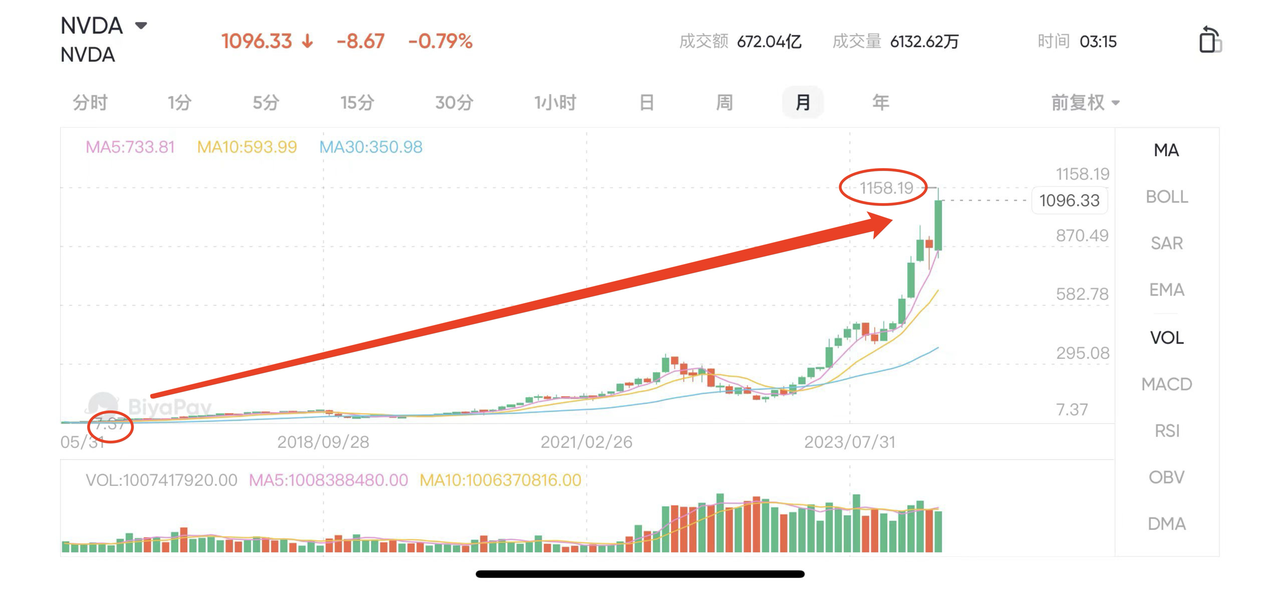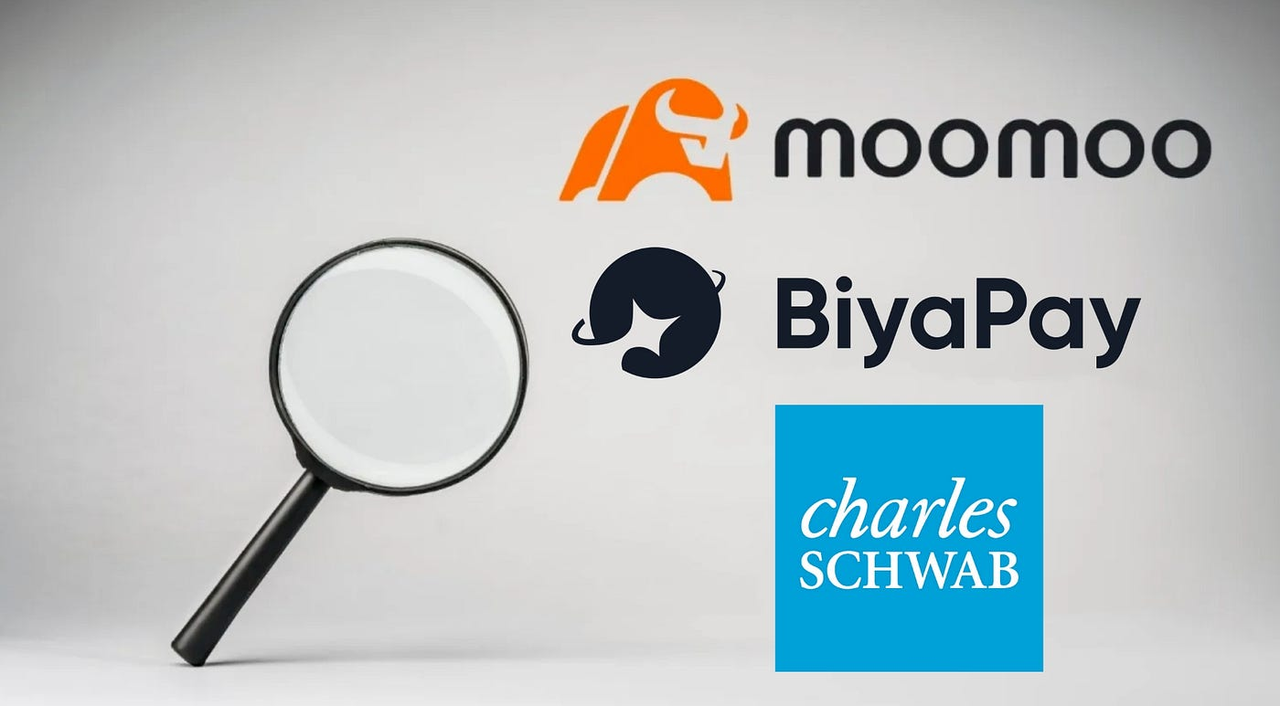- Remittance
- Exchange Rate
- Stock
- Events
- EasyCard
- More
- Download
NVIDIA Dives: Cultivating a Robust Mindset in U.S. Stocks
We often hear that investment success is composed of 60% mindset, 30% technique, and 10% luck, highlighting the crucial role of investor psychology in the investment process. Many seasoned investors have experienced significant losses due to psychological missteps. Therefore, establishing a scientific investment mindset is of utmost importance.
Today, let’s discuss the psychological aspects of investing in the U.S. stock market.
The Greatest Enemy of Investment Psychology - Market Volatility
Everything has a price, whether you fancy a new car or plan to buy a larger house. These items come with a price tag, and after acquiring them, you need to spend on maintenance—this is the cost. Investing is no different. The price of stocks and commissions are its costs, and stock price fluctuations are its inherent risks.
Imagine you foresaw NVIDIA’s bright future ten years ago and invested your entire fortune. Today, you would be quite wealthy, as NVIDIA has increased in value by hundreds of times over the past decade.

However, NVIDIA’s stock price has not always been smooth sailing. During this period, it experienced two declines of more than 80% and three declines of over 50%.
In such situations, how do you convince yourself to hold on firmly? How do you face your family when your assets shrink by 80%?
Of course, this is an extreme example, but as long as you invest in the stock market, volatility is inevitable.
For instance, today many people are very optimistic about technology stocks. Similarly, twenty-three years ago, people held the same view. After the dot-com bubble burst in 2000, the Nasdaq 100 index, representing technology stocks, fell by more than 80% and took about sixteen years to reach a new high.
Investing is exhilarating because it can create wealth, but it comes with a price—all investors must endure volatility. You must regard it as the cost you pay for a brighter future.
The Second Greatest Enemy of Investment Psychology - Greed and Envy
Of course, I believe some young friends might say, “Hey, I have the skill to avoid downturns and catch the upswings.”
Well, we will discuss this topic further, so please continue reading. There is a very interesting phenomenon.
Suppose you receive a year-end bonus of 100,000 RMB from your company, which is certainly a happy occasion. However, when you find out that your colleague, Xiao Li, whom you usually look down upon, received a larger bonus than you, I imagine you would no longer feel happy.
Capitalism excels at two things: creating wealth and creating envy. People like to compare themselves to others and prove that they are right.
From a positive perspective, this can generate motivation, making work more efficient.
However, from a negative perspective, people always feel unsatisfied. No matter how much money you make, someone always makes more. Wealth and envy are two things that have been infinitely magnified on social media today. We often see stories like day traders making a lot of money in a single day or someone recommending a stock that skyrockets in a few days. The most frustrating is when your neighbor, Old Wang, who knows nothing about investing, makes millions on Bitcoin. How can you stand that? You can’t; you want to do it too.
There’s a term in the financial market called FOMO, or Fear of Missing Out. It refers to this very mindset.
This psychological state can lead people to do foolish things. We hear many stories in this regard. For example, investment moguls betting on the market end up bankrupt, or even committing suicide; high-ranking officials engaging in insider trading end up disgraced and imprisoned. Of course, they might not be doing it entirely for the money but to prove their bold claims to others. In short, this competitive mentality can drive people to lose their rationality.
Therefore, remember, at some point in your investment journey, you need to adopt a mindset of “knowing when to stop.”
If you are never satisfied, you will never achieve a truly free lifestyle.

The Third Greatest Enemy of Investment Psychology - Blind Investing
Sometimes we see people doing extravagant things, such as spending a lot of money on luxury items, expensive cars, watches, and mansions, showing off their wealth. Meanwhile, others might live in an old, shabby apartment their entire life, yet they are extremely wealthy.
We need to understand that people come from different backgrounds. Their childhood, experiences, and education shape their worldviews and values. What seems crazy to you might be entirely reasonable to someone else.
For instance, the lowest-income families in the U.S. may spend over $400 on lottery tickets, more than four times the average amount spent by the highest-income groups. Additionally, more than a third of Americans cannot come up with $300 for an emergency fund. This may sound unbelievable, but from their perspective, buying lottery tickets is their way of realizing dreams, possibly their only way.
What I mean is, when you find someone else’s behavior crazy, try to understand their perspective. Their actions might be completely unsuitable for you to emulate.
The same principle applies to investing. You need to be very clear about your investment goals. Someone else’s investment strategy might not suit you at all. Stocks or investment portfolios recommended by others might not be worth following. If you are relatively young, you should focus on how to quickly accumulate capital rather than how to preserve wealth. Understanding the differences between people helps us more easily identify and reject investments beyond our capabilities. However, you can still consider good investment advice from experienced investors, such as choosing the right investment platform.

How do we choose the right investment platform? There are thousands of compliant stock exchanges worldwide providing U.S. stock trading services, such as Interactive Brokers and Charles Schwab. However, for investors in many regions, depositing and withdrawing funds in U.S. and Hong Kong stocks can be inconvenient. Fortunately, in recent years, some new brokers have emerged, allowing users to deposit cryptocurrencies like USDT to trade U.S. stocks, such as BiyaPay, which can help solve this problem. By visiting BiyaPay’s website, you’ll find that BiyaPay not only provides services for depositing USDT to trade U.S. and Hong Kong stocks but also allows withdrawing USDT to USD or HKD in bank accounts. Thus, BiyaPay can also facilitate deposits and withdrawals with other brokers.
Next, we will discuss the final aspect of investment psychology.
The Most Important Factor in Investment Psychology - Optimism and Calmness
What do the Great Depression of the 1930s, the financial crisis of World War II, and the recent COVID-19 pandemic have in common?
Clearly, they are all events that have had a massive impact on our society and financial markets, and they are almost entirely unpredictable. These are so-called black swan events.
Many black swan events change the course of human society, and we can find many reasons to explain them in hindsight. However, before these events occur, no amount of calculation can predict them. The greatest risk is actually something no one has ever thought of or mentioned, simply because no one could have known.
In 1988, Black Monday saw the U.S. stock market lose nearly a quarter of its value in a single day. In 2020, the stock market crash wiped out a third of its value in a month.
So, consider this: in such situations, would you sell? Or would you believe that the storm will soon pass and dare to invest more during the downturn? Or do you believe you have the ability to exit at the first sign of disaster and re-enter just before the rebound?
Avoiding market downturns also means you might miss out on upswings. Statistics show that 78% of the best days in the U.S. stock market occurred during bear markets or in the two months preceding bull markets. If you missed the 10 best days in the market over the past 30 years, your investment returns would be halved. Missing the best 30 days would reduce your returns by a staggering 83%.
No one knows what will happen in the future. The simplest and best way to avoid missing these best days is to hold on to your investments.
What I want to say with this example is that we must first admit that we cannot foresee extreme market movements. Do not expect to escape unscathed before disaster strikes; no one can perfectly avoid risks and capitalize on opportunities.
Therefore, maintaining an optimistic mindset at all times and being mentally and financially prepared to face disasters is crucial.

Why is optimism important?
For instance, if I show you data indicating a sharp decline in the U.S. government’s massive debt demand and an inverted yield curve, and tell you these factors could lead to an imminent stock market crash, you might find it convincing and even adopt a negative outlook.
Conversely, if I present data showing that human life expectancy is increasing, green energy is becoming more affordable, and AI applications are expanding, I aim to illustrate that our world is continually progressing. Seeing this information might fill you with hope for the future.
In the financial market, pessimists often seem more intelligent, while optimists may appear naive. Why is this?
Because gains accumulate slowly, while losses come suddenly and violently. Often, years of accumulated wealth can vanish overnight, causing significant pain. People fear loss due to the asymmetry between losses and gains. During human evolution, it became an instinct to prioritize avoiding loss over seeking gain.
This instinct makes pessimistic stories more captivating. Humans are inherently more interested in pessimistic narratives. Therefore, when facing adversity and difficulties, adjusting our risk preferences slightly can help. Just a bit of optimism can keep us clear-headed during disasters. The world is actually much better than you think.
Summary
If you are unwilling to pay the price of volatility, you will not become wealthy in the market. Envy is ultimately one of the worst psychological traps. Never risk losing what you have and need to pursue what you don’t have and don’t need. Others’ opinions and actions may not be worth emulating. Instead of trying to foresee disasters, be mentally and financially prepared to survive them. In the end, only optimists will have the last laugh.

























